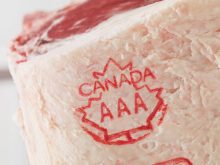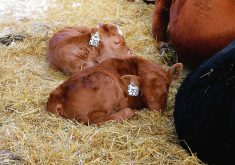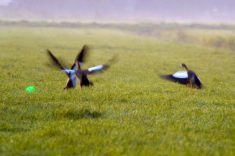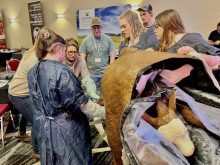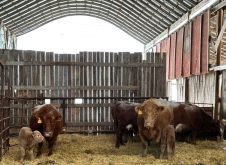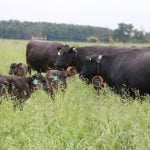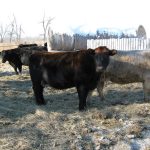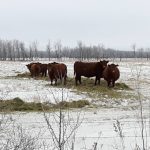Here in Canada, we’re enhancing our livestock identification programs. Individual cattle ID with radio frequency eartags (RFID), age verification, premise ID, animal movement records – about the only thing that isn’t planned is a GPS locator attached to each individual animal.
Incredibly, American efforts for a National Animal Identification System are back to Square 1. After years of work and millions of dollars of investment, critics of the system have carried the day.
U. S. Agriculture Secretary Tom Vilsack has announced that the USDA will develop a new flexible framework for animal disease traceability. Efforts will only apply to animals moved in interstate commerce.
Read Also
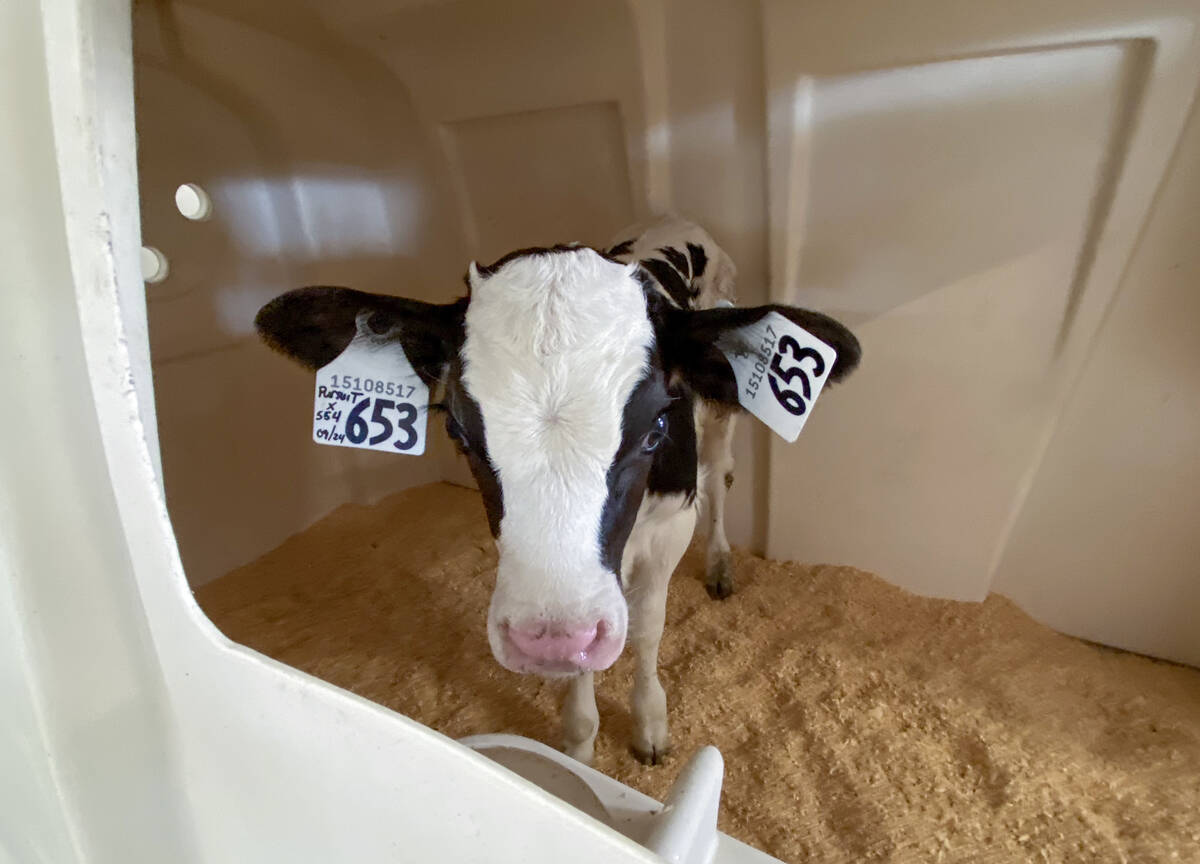
Plan toward better calves for healthier, more profitable dairy herds
Improved colostrum management, nutrition, and prevention-first health calf programs are boosting herd profitability, efficiency, and milk production.
The plan will be administered by the States and Tribal Nations. As well, lower-cost technology will be encouraged. The goal is a collaborative process, meaning there will be lots of talking before anything happens.
Here in Canada, we’re piling on more animal ID expenses, while our main trading partner is years behind us and going the opposite direction. Understandably, there are many cattle producers questioning the wisdom of the road we’re taking.
Despite our traceability system, we’ve had great difficulty reopening key export markets after they were closed in 2003 due to the BSE (mad cow disease) outbreak.
Other producers say our mandatory system has always been industry driven rather than producer driven. They tell stories of poor retention rates for the RFID buttons and cattle with numerous holes in their ears.
Overwhelmingly, we have commodity beef and yet we’re implementing a Cadillac ID system. We have a beef industry that’s tied to the U. S., but our main trading partner has backed away from a national ID plan. Increasingly, Canadian cattle producers are wondering if the ID rules are paying any dividends.
However, the biggest benefits from the system may yet to be seen and they may be unrelated to disease traceability or age verification.
The Canadian Cattlemen’s Association is building a value chain database called the Beef InfoXchange System (BIXS). It will enable individual animal performance, health, carcass data and more to be uploaded to a central database at each step of the beef value chain.
For the first time, producers will be able to follow the performance of their calves through the feedlot and into packing plants. Of course, the basis on the system will be the ID program which identifies each individual animal. If the ID is required anyway, we might as well be making use of it.
Most cow-calf producers don’t retain their calves until they reach slaughter weight. They have no evidence of how their calves grow or how the carcasses grade. With information will come power – power to adjust genetics and production practices and hopefully the power to command premium prices for premium livestock.
Information for each animal will be maintained on a master website and anyone who has owned that animal will be able to source the statistics.
There may be problems and delays. Producer feedback may necessitate some changes, but BIXS officials are hoping for a spring launch. Much more information is available at http://bixs.cattle.ca.
For cattle producers in the business for the long term, BIXS should be a great development. Perhaps it will make the pain and expense of animal ID worthwhile.
Kevin Hursh is a consulting agrologist and farmer based in Saskatoon. He can be reached at [email protected].


